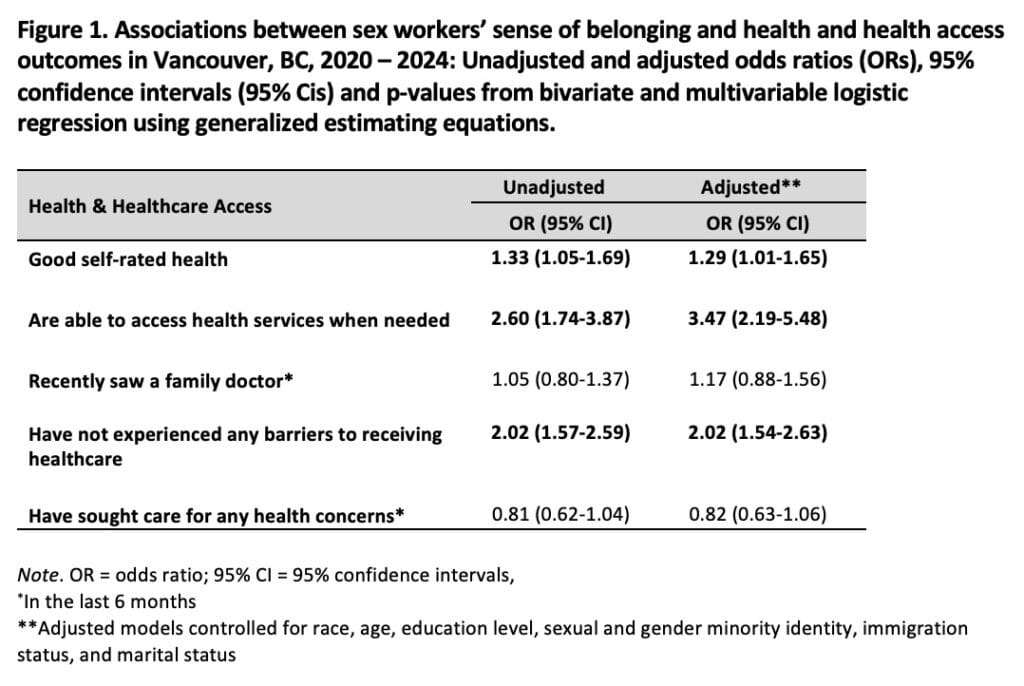Social
Sense of community belonging associated with increased self-rated health and reduced barriers to health care among sex workers in Vancouver, Canada: Findings from 4 years of longitudinal cohort data Kaylee Ramage* Kaylee Ramage Wiebke Bartels Jennie Pearson Kate Shannon Andrea Krüsi Shira Goldenberg
Background: Community belonging is positively associated with general health and negatively associated with unmet healthcare needs. Sex workers often experience marginalization, discrimination, and criminalization, all of which may affect their sense of belonging within their geographical communities; however, this impact on health has not been investigated. Using the Brief Sense of Community Scale (BSCS), we examined the relationship between sex workers’ sense of community and their health and healthcare access in Metro Vancouver, Canada.
Methods: Using data from a prospective, community-based cohort study of sex workers (09.2020–02.2024), we separately estimated the associations between the dichotomized BSCS (≥30 vs. <30) on health and healthcare access. We conducted complete case bivariate and multivariable logistic regression using generalized estimating equation modelling, controlling for race, age, education level, sexual and gender minority identity, immigration status, and marital status.
Results: Of 320 sex workers who responded to the BCSC, 55.6% reported moderate sense of belonging in their community at their first available observation. In bivariable and multivariable analyses, higher sense of community belonging was associated with higher self-rated health (aOR:1.29, 95%CI:1.01-1.65), increased access to health services when needed (aOR:3.47, 95%CI:2.19-5.48), and experiencing no barriers to receiving healthcare (aOR:2.02, 95%CI:1.54-2.63).
Conclusion: Higher levels of community belonging are associated with better health and reduced barriers to healthcare among sex workers. Strengths-based interventions which support increased sense of community and recognition of sex workers as community members, such as sex worker-led spaces and venues, may support improved health outcomes and health access for sex workers. Further research is needed to better understand the role of community belonging on health amidst other sources of structural marginalization.

